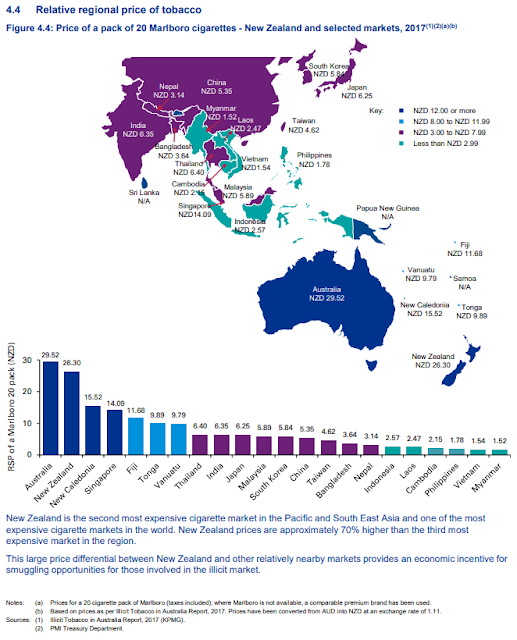It's great that the Ministry of Health's latest Health and Independence Report points to the benefits of vaping. But there's still work to do here.
The report notes that smoking is most prevalent in poorer communities and that while smoking rates have been declining, there's no way that current trends get the government to its preferred <5% smoking rates by 2025. And the report points to how e-cigarettes might help:
E-cigarettes: an option to help smokers to quitBut there are still problems in getting there:
Although the best thing smokers can do for their health is to quit smoking completely, the Ministry of Health considers that e-cigarettes have the potential to contribute to the Smokefree 2025 goal and could disrupt the significant inequities that are present. How much e-cigarettes can help improve public health depends on the extent to which they are a route out of smoking for New Zealand’s 529,000 daily smokers, without providing a route into smoking for youth and non-smokers.
Expert opinion is that e-cigarettes are significantly less harmful than smoking tobacco but not completely harmless. A range of toxicants have been found in e-cigarette vapour, including some cancer-causing agents. In general, levels of these toxicants are much lower than they are in tobacco smoke or are unlikely to cause harm. Smokers switching to e-cigarettes are highly likely to reduce their health risks and that of those around them.
Where smokers want to use e-cigarettes to quit smoking, the Ministry of Health encourages them to seek the support of local stop-smoking services. Local stop-smoking services provide smokers with the best chance of quitting successfully and should support smokers who want to quit with the help of e-cigarettes (Ministry of Health 2017f).
- There remain interesting conflict of laws problems around plain packaging rules and the Fair Trading Act. Plain packaging rules for tobacco products would include heated tobacco, including Iqos. And, in theory, would also cover any nicotine derived from tobacco for vaping too. But putting the big smoking warnings on packages of products that are not smoked could be considered illegal under the Fair Trading Act's prohibitions around false representations and misleading conduct.
I emailed MBIE asking about this, and they punted to ComCom. When I asked ComCom, they said that they cannot vet specific advertising or business practices for any company - and that companies would have to seek independent legal advice. So it is legal to sell vaping products - but if MoH believes the nicotine to be tobacco derived, it might consider it to be subject to the plain packaging rules. And it might be illegal to put those plain packaging warnings on the packages. But the government will not tell you. Seems pretty dumb. And it's an odd kind of dumb - companies that are cagey about how their nicotine is derived are probably ok, but ones that publicly state that their nicotine is derived from tobacco may not be. - MoH is of the view that the Iqos decision does not apply to snus. Snus has seemed rather important in getting people away from smoked tobacco in Sweden. Why they want this to still be illegal - I don't get it. I expect that if they ever sued NZ Snus for selling the stuff, that the prohibition could easily be deemed inconsistent with the purposes of the Act.
- Excise rates on non-combusted tobacco for reduced harm devices remain unjustifiably high. This doesn't affect vaping, which is not subject to excise (phew!), but would be a problem for other products. And what about the display bans and bans on advertising less harmful alternatives?
Here's a picture of the potential gains from getting foreign-sourced cigarettes to the NZ market.
I hope the government does not set a new path of excise hikes and rather focuses its attention on making sure the regs aren't in the way of selling less harmful alternatives.


No comments:
Post a Comment